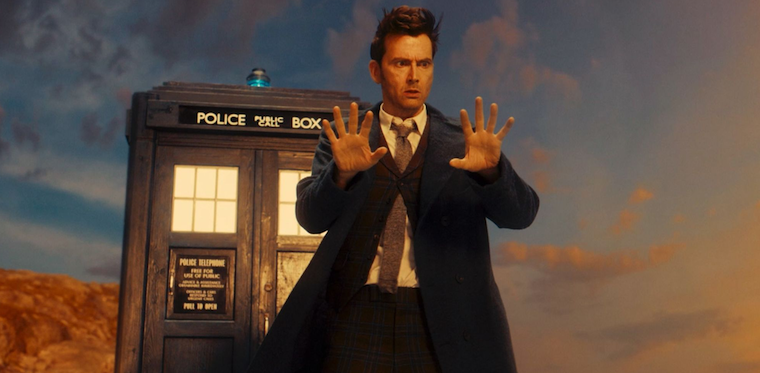
You probably heard a few weeks ago that Disney’s deal with Doctor Who was over, assuming you care about this franchise.
The fanbase should have groaned with disappointment, but they cheered instead. In that same vein, the BBC’s revelation that Doctor Who would return with a 2026 Christmas special written by Russel T. Davies was met with frustrated sighs.
Davies has gone from Doctor Who hero to something akin to a villain. People don’t necessarily hate him. Rather, the fanbase is disappointed in his performance thus far. Doctor Who was on its last leg when he returned to the fold.
Davies had singlehandedly turned Doctor Who into a science fiction juggernaut after reviving the dead franchise in 2005. The fanbase was convinced that Davies could recreate that magic that made those seasons from the 2000s so special.
They were wrong. Doctor Who’s ratings have plummeted drastically in the last two seasons. Fans have accused Davies of Disneyfying the franchise. It feels like he is writing for young children, hence the excitement over Disney’s decision to cancel the deal.
However, you have those who argue that Disney is not the problem. Rather, Davies believes that Doctor Who is a children’s franchise at its core, a tool through which writers can impart important social messages to children, and he wants to return the show to its roots by blunting the serious edge it has developed over the years.
True, the Davies era has given us some stellar episodes. Go watch The Well, which is a direct successor to another brilliant Doctor Who episode called Midnight.
The protagonists are pitted against an entity that binds itself to unsuspecting victims, killing anyone who gets behind them. The episode’s ability to generate tension and urgency is stunning. Lux is good when it begins.
The Doctor and Belinda must overcome Lux, a cartoon character in an abandoned theater. The episode becomes great once the Doctor discovers Lux’s true identity (the God of Light) and his connection to the Pantheon of Discord.
The ending was spine-tingling. Then there is The Story and the Engine, which felt like the show’s most fantasy-infused episode to date because the protagonists are stuck in a barbershop in Lagos, Nigeria, where the Doctor and his fellow prisoners can only survive by telling stories. T
he villain is Anansi, a mythical storyteller who feels scorned because the Gods abandoned him after using his stories to establish a foothold on the mortal plane. Those three episodes alone prove that Davies’ spark for storytelling is still alive and well.
However, they represent a tiny portion of Ncuti Gatwa’s run as the Doctor under Davies. The majority of Davies’ episodes in the new era have been laughably bad. Does anyone remember Space Babies? What the hell was that?
If Davies could concoct such a ridiculous concept, then maybe he has lost his touch. Ncuti was a decent Doctor, but he failed to put his mark on the role. Don’t expect anyone to mention him with the same reverence that David Tennant and Matt Smith attract.
His departure will give the next season a fresh start. Yes, I know. Ncuti’s Doctor regenerated into Rose Tyler, who is anything but fresh. More importantly, any excitement we would’ve felt at the idea of revisiting Rose is dampened by how poorly Davies treated Tennant and Donna’s return, which puts Doctor Who in a difficult position.
The fanbase has turned against Davies. He is no longer a beloved celebrity in the community. They want the BBC to replace him. However, it looks like the BBC has already decided to push forward with him.
katmic200@gmail.com



